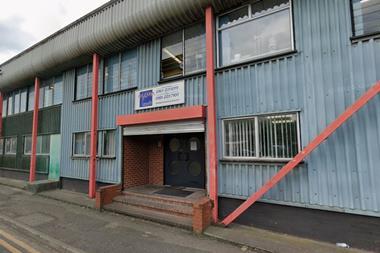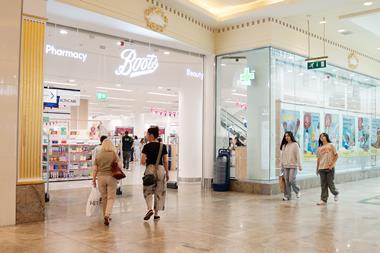Suppliers using temporary gang labour have called for a new supermarket protocol to be rejected unless it is revamped to give more protection to sensitive company information.
Under the new proposals, put out for consultation last week, retailers and the Gangmasters' Licensing Authority would share information, undertake joint supplier visits and issue joint press releases identifying where supply chain workers' abuse had occurred.
The protocol, which covers gang workers in the agriculture, horticulture, shellfish, food and drink processing and packaging sectors, has been developed to increase co-operation between supermarkets and the GLA and stamp out the mistreatment of temporary, usually foreign workers in low-paid jobs.
The GLA currently undertakes investigations independently of retailers, but joint inspections have now been proposed with the big four plus Iceland, M&S, The Co-op Group and Waitrose.
The new steps would also do little to stop worker abuse in the shellfish sector, said a senior seafood industry source. " The GLA neither has the resources, funds nor capability to tackle all the Chinese groups still operating in Britain. This new protocol is Big Brother stuff and it's a step too far."
Supermarkets have agreed to take "decisive action" if worker abuse is found, which could include suspending or delisting the supplier, as part of the protocol. A more proactive approach to PR is also planned, with the GLA issuing press releases supporting retailers who have taken action to stamp out abuse in their supply chain.
Direct suppliers would also be asked by retailers to provide the GLA with the names and contact numbers of labour providers, the number and nationalities of workers employed and details of the products and retailers supplied.
However, the GLA insisted the protocol would not be to suppliers' detriment. "We are not about beating up suppliers," said chairman Paul Whitehouse. "We do not want to fall out with the people doing their job well. If we can see the whole supply chain we can see the grey areas, and will give anyone credit who helps us."
Sensitive information would not be disclosed to other parties without the express permission of the supplier or retailer, the GLA added, and suppliers would also be free to issue their own press releases.
The consultation runs until 31 July.
Under the new proposals, put out for consultation last week, retailers and the Gangmasters' Licensing Authority would share information, undertake joint supplier visits and issue joint press releases identifying where supply chain workers' abuse had occurred.
The protocol, which covers gang workers in the agriculture, horticulture, shellfish, food and drink processing and packaging sectors, has been developed to increase co-operation between supermarkets and the GLA and stamp out the mistreatment of temporary, usually foreign workers in low-paid jobs.
The GLA currently undertakes investigations independently of retailers, but joint inspections have now been proposed with the big four plus Iceland, M&S, The Co-op Group and Waitrose.
The proposals
Closer communication between supermarkets and the GLA, who will now meet at least every six months
Joint retailer/GLA visits to suppliers
Suppliers to provide details of seasonal workers and customers
Suppliers found to be complicit in worker exploitation to face action, which could include suspension or de-listing
This raised concerns over the sharing of sensitive commercial data obtained during joint visits, according to Nigel Jenney, chief executive of the Fresh Produce Consortium. "It's vital that the development of the GLA and supermarkets' protocol treats retailers and suppliers as 'equal and constructive partners' and does not undermine relationships between retailers and their suppliers/labour users," he said. "Unless it works fairly and effectively for all parties in the supply chain, this protocol should be rejected."Closer communication between supermarkets and the GLA, who will now meet at least every six months
Joint retailer/GLA visits to suppliers
Suppliers to provide details of seasonal workers and customers
Suppliers found to be complicit in worker exploitation to face action, which could include suspension or de-listing
The new steps would also do little to stop worker abuse in the shellfish sector, said a senior seafood industry source. " The GLA neither has the resources, funds nor capability to tackle all the Chinese groups still operating in Britain. This new protocol is Big Brother stuff and it's a step too far."
Supermarkets have agreed to take "decisive action" if worker abuse is found, which could include suspending or delisting the supplier, as part of the protocol. A more proactive approach to PR is also planned, with the GLA issuing press releases supporting retailers who have taken action to stamp out abuse in their supply chain.
Direct suppliers would also be asked by retailers to provide the GLA with the names and contact numbers of labour providers, the number and nationalities of workers employed and details of the products and retailers supplied.
However, the GLA insisted the protocol would not be to suppliers' detriment. "We are not about beating up suppliers," said chairman Paul Whitehouse. "We do not want to fall out with the people doing their job well. If we can see the whole supply chain we can see the grey areas, and will give anyone credit who helps us."
Sensitive information would not be disclosed to other parties without the express permission of the supplier or retailer, the GLA added, and suppliers would also be free to issue their own press releases.
The consultation runs until 31 July.














1 Readers' comment